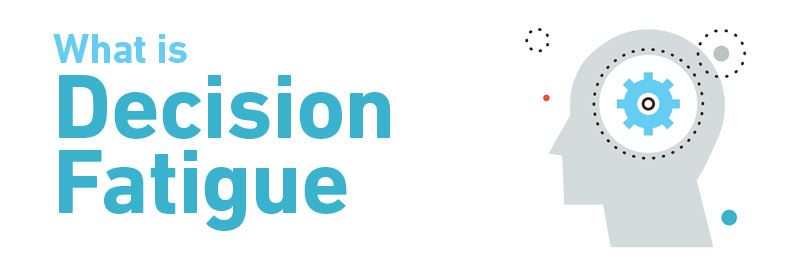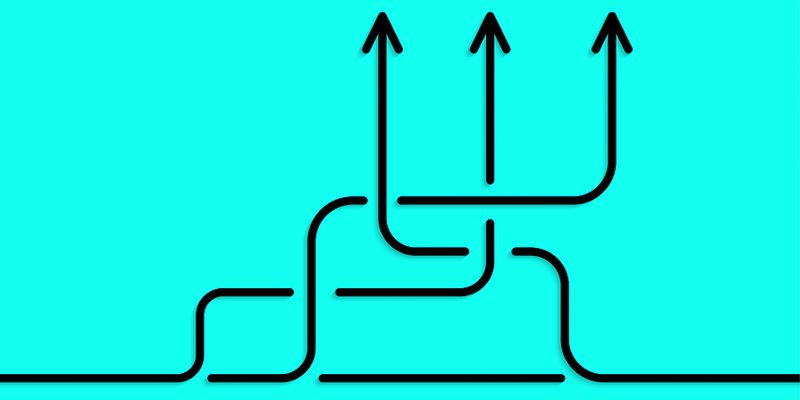What is Decision Fatigue?
Throughout the day, we make thousands and thousands of decisions. Some easy, some difficult. Some have no consequences, and some can be incredibly important.
From the moment you wake up, your mental strength is being eroded away. Think of it like a counter. You start the day with 1000 decision tokens, and every little choice you make takes some away.
One more snooze or wake up? Which shampoo shall I use? Cornflakes or Cheerios? Which route to work will have the least traffic? Should I have lunch at 12 or 1? Every little decision takes its toll on our minds. Whether to fire Jim from accounts or whether to charge your phone or not obviously take varying degrees of mental processing, but both contribute towards depleting your mental fatigue. Goodbye tokens.
“In decision making and psychology, decision fatigue refers to the deteriorating quality of decision made by an individual, after a long session of decision making” – Source
It is one of the primary understandings towards why people make irrational decisions towards the end of the day, and why stressful situations can lead to poor choices. One study demonstrated that judges have been shown to make less favourable decisions towards the end of the day, than with their first subjects.
When you were younger, do you remember the old myth that driving instructors can only pass a certain number of people in a day? Did you use that to try and justify your first-time failures? Whilst the quota system is actually nonsense, an element of decision fatigue can come into play to explain why people towards the end of the day might fail more often than in the early morning, since the instructors have been making difficult choices that affect the lives of people sat across from them all day.
What can you do?
Simply knowing that decision fatigue is a thing is the easiest way to stop yourself from falling victim to it quite so much. Acknowledging that your willpower, or ability to make complex decisions, falters towards the end of a tough day can help you to look informatively and objectively at the choices you are making.
Knowing this can help you avoid succumbing to impulse buying and irrational decisions.
Impulse buying
A study by Jonathan Levav at Stanford University looked at how people can become vulnerable to well times sales and marketing strategies. He states that: “Decision Fatigue helps to explain why ordinary sensible people can’t resist the dealer’s offer to rustproof their new car.”
Financial decisions are shown to have a greater impact on a person’s decision fatigue. The stakes involved are much higher and more important with monetary trade-offs than simply which brand of cereal to have. Studies also show than lower-income people are more vulnerable to decision fatigue and point-of-sale impulse offers whilst shopping. Every decision they make during their shopping trip requires more thought and analysis that that of someone who is wealthier, to whom spending money is not as delicate a task.
Bearing in mind that decision fatigue plays a part in your decision making can help you to re-focus when you feel impulsed to buy something irrational, or that you wouldn’t normally go for.
Decision avoidance
On the flip side, decision avoidance is equally as prevalent amongst shoppers. The logic behind this is that people who are overwhelmed by a lot of choices are less willing to buy anything at all. therefore, by that logic, people who are given fewer choices find it easier to commit to buying something. Since the decision of what to buy is a comparison of options – the less there are, the fewer mental comparisons the buyer must do. This is a reminder of the need for a healthy balance between choice, and refinement.
If a company sent you an email mentioning every single product they offer, it would be intensely overwhelming. It’s safe to say it would put a consumer off from buying anything at all. One that lands in your inbox around winter time, with a targeted subject line like: “Winter is coming – here are our 4 best selling heaters” is much more likely to encourage consumers make a decision to buy a heater.
You can do yourself a favour, when faced with a lot of options, and block out everything you don’t need to digest – at least not at that time. This will help you to decide in a more rational and controlled manner whether or not you want what you’re being offered.
Prioritise decisions for the start of the day.
Make decision that are critical or importance to your job or home life in the morning when you’re feeling fresh and unburdened. This will help you make more thought out and rational decisions.
Back

